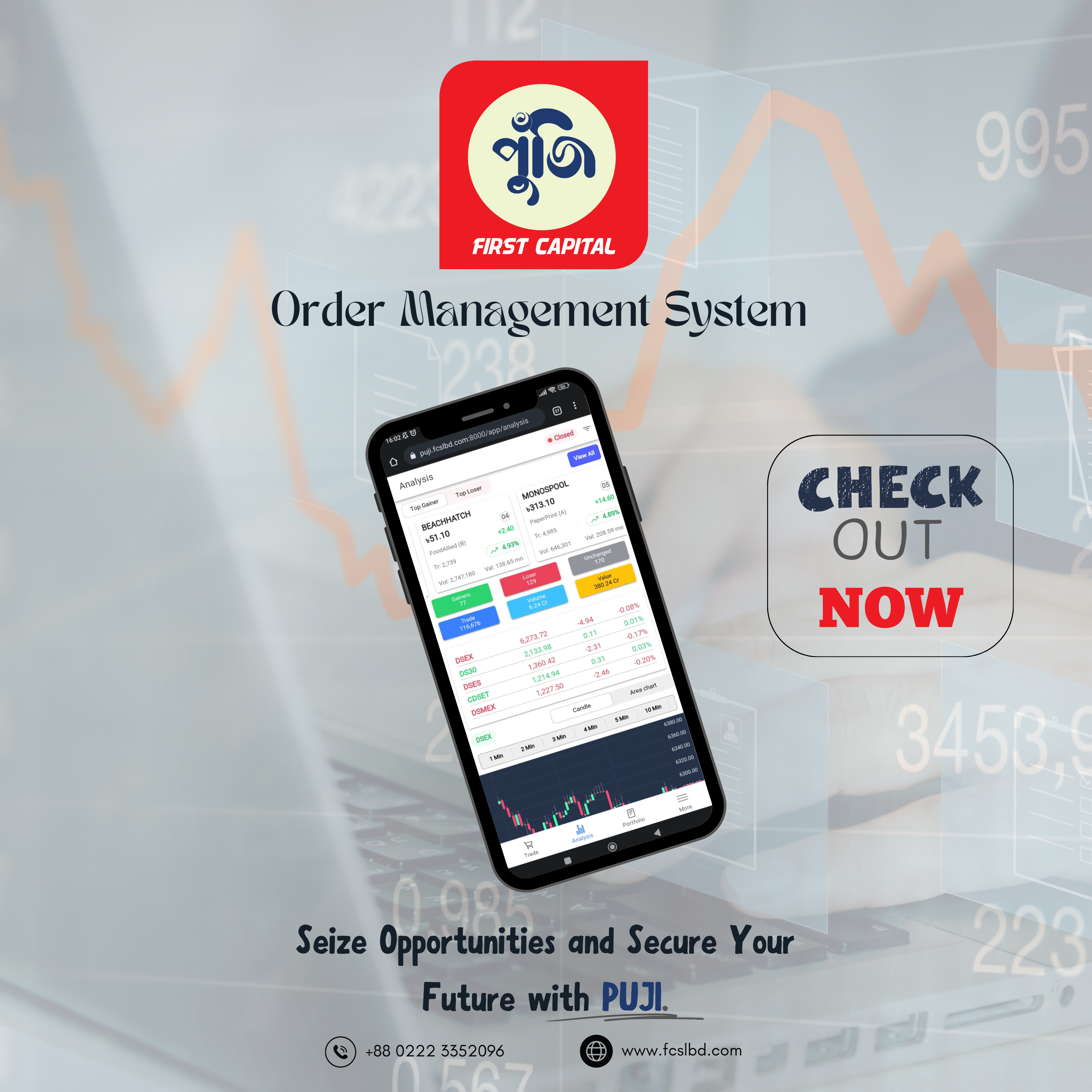Fund raising from the primary market through initial public offerings (IPOs) has fallen sharply to Tk 2.68 billion this year, the lowest in six years, as entrepreneurs adopted ‘go-slow’ policy ahead of the national election.
Market experts also attribute this to the ongoing economic uncertainties and well-performing companies’ reluctance to go public while an artificial price fixing mechanism is in place.
Only five companies and a close-ended mutual fund raised Tk 2.68 billion in total by floating an IPO in the outgoing calendar year, while nine companies and a mutual fund collected Tk 7.53 billion last year.
Most of the funds gathered through IPOs are meant for business expansion, repayment of loans, and to serve as working capital.
Manufacturing firms do not feel the need for funds, while striving to overcome economic challenges unleashed by the Covid pandemic and then exacerbated by the Russia-Ukraine war.
“Many companies, which were planning to float shares, shelved their plans as their cash flow turned negative amid economic slowdown,” said Mohammad Rezaul Karim, spokesperson and executive director of the Bangladesh Securities and Exchange Commission (BSEC).
As per the public issue rules-2015, the issuer that intends to float IPO shares must have shown a net profit and a positive operating cash flow in the immediate past two years.
In the ongoing unfavourable business climate, merchant bankers say they do not want to facilitate listing of companies for the fear that financial health of the entities may get deteriorated after listing.
Earlier, many issue managers were criticised for handling IPOs of weak enterprises.
“Now we are very selective, which is also a reason behind the fewer number of IPOs,” said Md Riyad Matin, secretary general of the Bangladesh Merchant Bankers Association (BMBA).
The bearish market has also been a discouraging factor.
Several issue managers told the FE that well-performing companies had lost interest in coming to the stock market because of its gloomy situation, easy access to bank loans, and the regulator’s conservative approach in giving approval.
“Unless the market condition improves, companies will stay away from the stock market,” said Mr Matin, also managing director of BMSL Investment.
Besides, many big entrepreneurs do not want to take the hassle of dealing with a huge number of shareholders.
However, BSEC spokesperson Mr Karim is optimistic that the number of IPOs will rise next year after the national election.
Although the IPO pipeline is not strong, he said he hoped the companies, whose financial year would end in December, might apply for an IPO next year.
The lending rates of banks have continued to go up because of the rising interest rates of Treasury bills and the policy rate hikes by the central bank.
Interest rates of bank loans may climb up to 15 per cent in the near future, making businesses unsustainable with bank borrowings.
For a sustainable business growth, entrepreneurs should come to the stock market, as it will ensure long-term financing, said the BMBA secretary general.
Many banks’ liquidity management is in trouble, as they collect funds from short-term deposits but give loans for long term. On the other hand, higher interest rates are mounting repayment pressure on entrepreneurs, which may lead to loan defaults.
Mr Matin said issuers might go to the stock market in the future to arrange funds for their business expansion instead of taking loans from banks.
Meanwhile, the stock market has remained bearish for more than a year since the imposition of floor price in July last year, with some periodic upward movements that failed to sustain.
Faruq Ahmad Siddiqi, former chairman of the BSEC, thinks the market will not be stable unless a good number of companies with strong fundamentals enter the market.
“No artificial support will make the market stable.”
There are many good companies which are not listed. “Those companies should be persuaded into offloading shares for the sake of the market’s stability,” said Mr Siddiqi.
He suggested an extensive valuation and scrutiny of IPO proposals to keep away companies having bad intentions.
This year until now, two companies — Trust Islami Life Insurance and Midland Bank — raised funds under the fixed price method, while Agro Organica and Al-Madina Pharma collected funds to get listed on the SME platform. A mutual fund — Capitec Grameen Bank Growth Fund — collected funds from the primary market.
IPO subscription of Sikder Insurance will be held between December 21 and December 28, aiming to raise Tk 160 million from the primary market.
Meanwhile, the stock market regulator allowed Best Holdings to raise Tk 3.50 billion through an IPO between January 8 and January 14, 2024.
No fund through rights issues
Not a single listed company has raised money by issuing rights shares until now this year, as the stock market regulator has been discouraging that.
Insufficient documents for approval and the prevailing bearish secondary market are the factors behind the position of the regulator.
The rights issue is an offer of new shares by a company to its existing shareholders in proportion to the shares they already own and usually at a discount to the market price within a stipulated time.
The regulator rejected HR Textile’s proposal for rights shares in the year as the company failed to submit required documents.
HR Textile applied for issuing right shares at Tk 20 each, including a Tk10 premium on the face value.
Last year, only one company — Sonali Paper & Board Mills — raised Tk 109.82 million through rights shares.
The stock market regulator last week allowed Sinobangla Industries, a manufacturer of plastic packaging products, to get Tk 202 million by releasing right shares for business expansion and loan repayments.
source: thefinancialexpress.com.bd
IPO flow




